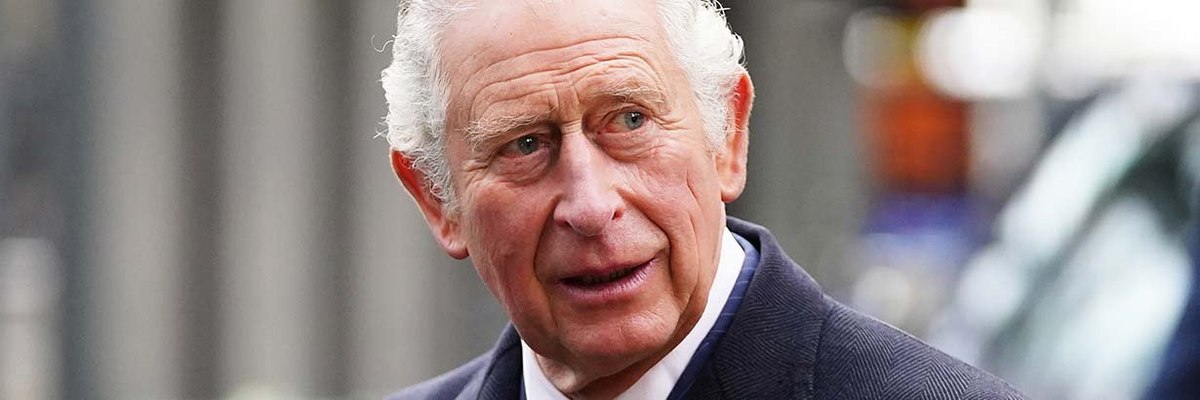There is much talk of coronations in the land. The first is of the political kind. Odds are being offered on the chance that Liz Truss will be forced by her own MPs to pack her bags and leave Downing Street. If that happens her successor may be chosen not by yet another leadership election, which takes an unconscionable amount of time, but by a process of acclamation: a ‘coronation’ in which Tory MPs agree to elect one of their number unopposed. Rishi Sunak’s name is, inevitably, already being spoken of. But as I write these words the whole thing is shrouded in uncertainty.
The other coronation is a certainty. It will happen, as we now know, on 6 May next year and there is only one ‘candidate’. What remains in some doubt is what sort of ceremony it will be and how the nation will react to the reign of a new monarch. What are your thoughts?
The Guardian, hardly the most monarchist newspaper in the land, gave an intriguing edge to the debate by reprinting an editorial it first published seventy years ago, just days before the coronation of Elizabeth II. That editorial made the point that the coronation should not be celebrated ‘merely as a pious and joyful tribute to history, tradition and continuity’. To do that, it said, would be to miss half its significance - the most important half. That’s because it was not a routine event in the annals of a set institution, as were the crowning of mediaeval monarchs. Nor was is it a mere romantic pantomime, appealing to easy sentiment with its remembrance of things past and to popular curiosity, with its play on personality. So what was it? Here’s how the editorial continued:
‘Once more, as when King George VI died a year ago, we find that a royal event has the power to eclipse everything that normally occupies the public consciousness; to reduce all the most important transactions of international diplomacy and national politics to the second rank of interest; and to reach into a depth of collective emotion never touched by the business of governments. The fact that this is so is still quite insufficiently explained, but it is undeniable; and it is a new fact. It testifies to an unexampled rise in the prestige of British monarchy. In the last few decades, the royal function of reigning has revealed itself as a great unifying factor for the nation.’
That rise, it pointed out, was quite recent. A little over 40 years earlier (in 1910) when King George V came to the throne, the British monarchy was only one of many in Europe and Asia. Monarchy was still, as it had almost always been, the normal form of state everywhere. But it had entered a phase of decline. In this country it was still a respected and popular institution, but it was hardly felt to be ‘the emotional pivot of our national life.’ Otto von Bismarck, the first chancellor of the mighty German empire in 1871, had made it clear what he thought of the British style of monarchy: ‘A merely ornamental embellishment of the constitutional structure, a dead cog in the mechanism of a parliamentary regime’.
Events over the next half century were to prove that Bismarck’s judgement was shrewd. One after another, the great thrones of Europe and Asia were to fall. The British monarchy clung on but, as The Guardian noted all those years ago, its constitutional powers did not increase. Rather, it said, ‘wise self-restraint has withdrawn the crown even farther from the day-to-day business of government and politics. Reign and rule are more clearly divided than ever. But the British monarchy has established a new hold on the public imagination which is perhaps unequalled in its 1,000-year-old history; it certainly is unequalled in modern times.
‘What has taken place is a rediscovery of the forgotten and mysterious function of reigning, in contrast with the prosaic governmental function of ruling. Slowly and imperceptibly in the last few decades, and more dramatically in the last few years, the royal function of reigning has revealed itself as a great unifying factor in our national life. While governments and politicians of the Right and Left have more and more come to be regarded as “they”, our kings and now our young queen have come to be felt as the living embodiment of all that still makes us say “we”.’
Well, that was then and this is now and rather a lot has changed. I regret to admit that I am old enough to remember food rationing – even sweets. We were allowed four ounces of them a month. Take it from me… that’s pretty miserly. Rather more importantly, meat was very strictly rationed too. It was reported that Winston Churchill, who was of course prime minister at the time, was shown a ration booklet and commented: “Not a bad meal”. Then it was pointed out to him that it was not, as he had thought, a week’s ration. It was a month’s.
Some changes are more difficult to measure. We tell ourselves that the age of unthinking deference has passed and that’s true on many levels. But the response from millions of us to the Queen’s death may have told a rather different story. The vast queues of people wanting to pay their respects clearly said something about the affection in which she personally was held, but what does it say for our attitude towards the concept of the monarchy? This is where the coronation may be edifying.
It has already been accepted by King Charles, it seems, that it will be a far more modest event than the one I remember watching on a neighbour’s tiny black and white television all those years ago. One Palace source told the Mail: “The King has stripped back a lot of the coronation in recognition that the world has changed in the past 70 years,” It will be much shorter and cost much less. The guest list will be cut from 8,000 to 2,000. Peers may even be allowed to wear lounge suits rather than ceremonial robes.
And how will the public react? It’s difficult to say whether there will be the same emotional outpouring that met the Queen’s death. Clearly she had a grip on the public’s affection that her son would struggle to match. Far more important will be what it tells us of our attitude to the monarchy as an institution. On that subject YouGov produced an interesting survey only a few days ago.
It found that the events surrounding the Queen’s death do seem to have strengthened our attitudes – both of those who want a monarchy and those who want a republic. Back in May 77% of those who want the monarchy to continue said they felt strongly about it. Now that figure is 83%. But there has been a sharper increase in the number of those who feel strongly about a republic. It has risen from 61% to 71%.
And, perhaps more worrying for the Palace, there are serious differences between the generations: 86% of those over the age of 65 say we should continue to have a monarchy but just 47% of those aged between 24 and 18 agree. The average figure from 2020 onwards prior to the Queen’s death had been 35%. It is also worth noting that there was no commensurate decrease in the number of young people wanting a republic in response to the passing of the Queen. Compare those figures with an opinion poll in 1964 (arguably less rigorous than a modern YouGov) which found that a third of those questioned still believed the Queen had been chosen by God rather than heredity.
Set against the dramatic events being played out in Westminster even as I write, it may seem a shade irrelevant to try to anticipate a post-coronation nation. But let’s leave you with this thought from a young woman who was beginning to make a name for herself in the Labour Party before our last coronation and eventually made it into the Cabinet. There were many who said she should even become our first female prime minister - but she was often too outspoken for her own good. Her name was Barbara Castle and this is part of what she wrote just after the coronation: ‘I didn’t see what all the fuss was about … I hoped this would be the last coronation of its kind we should see, it was so unrepresentative of ordinary people … [but] I think there is no doubt this is a minority view, even among the working class.’
Well, her hopes were to be dashed. The next coronation on 6 May will be different from the last – but Baroness Castle would regard it still as ‘unrepresentative of ordinary people’. Do you? And if you do what hope do you have that it will be the last of its kind? Or do you regard the monarchy in the way The Guardian did seventy years ago as ‘a great unifying factor in our national life’?
Let us know.










